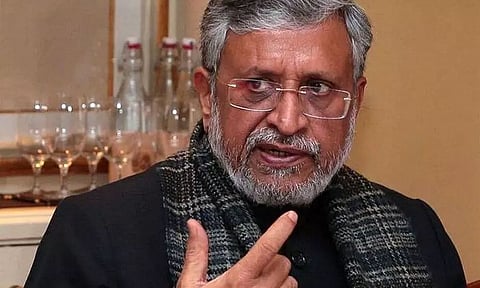
- Home
- Live Blog
- Breaking News
- Top Headlines
- Cities
- NE News
- Sentinel Media
- Sports
- Education
- Jobs

NEW DELHI: The Supreme Court was persuaded to recognise same-sex weddings by four gay couples. BJP MP Sushil Modi brought up the issue in Parliament on December 19.
He declared that while same-sex relationships were OK, allowing them to marry would upset the delicate balance of society. Sushil Modi continued by saying that two judges cannot deliberate on such a critical matter for society while seated at the same table (same-sex marriage).
He emphasised that Indian society is "not ready" to allow same-sex unions on Tuesday. However, he noted, some leftist and liberal campaigners petitioned the Supreme Court to make same-sex marriage legal. He noted that the government has filed an affidavit opposing it at the Supreme Court.
His remarks sparked a commotion and infuriated the LGBTQIA community across the nation.
It is important to examine what Indian law says regarding same-sex relationships and weddings and how it has changed through time, as Sushil Modi claims that numerous Acts would need to be modified to make same-sex marriage legal.
Under Section 377 of the Indian Penal Code, which went into effect in 1861, homosexuality remained a felony. The Supreme Court ruled in 2018 that Section 377 is unconstitutional because it violated the fundamental rights to autonomy, intimacy, and identity after more than 70 years of independence.
Due to the decriminalisation of homosexuality in India, same-sex partnerships are now recognised as legal. However, same-sex unions were not made legal. Since that time, the LGBTQIA community has urged the government to create laws that would permit same-sex unions, same-sex adoption, and inheritance rights.
According to sources, as a live-in couple, the community may be granted rights and benefits comparable to those enjoyed by married couples. However, a same-sex couple is unable to exchange vows.
The decision made by SC:
LGBTQIA couples now have the same rights and benefits as married couples thanks to a Supreme Court decision this year that expanded the definition of a family to include cohabiting partners.
NCP leader Supriya Sule submitted a private member's bill on April 2 of this year to grant the LGBTQIA community equal rights to marriage under the 1954 Special Marriage Act.
Also watch: